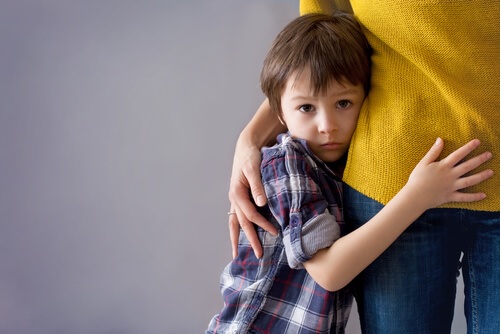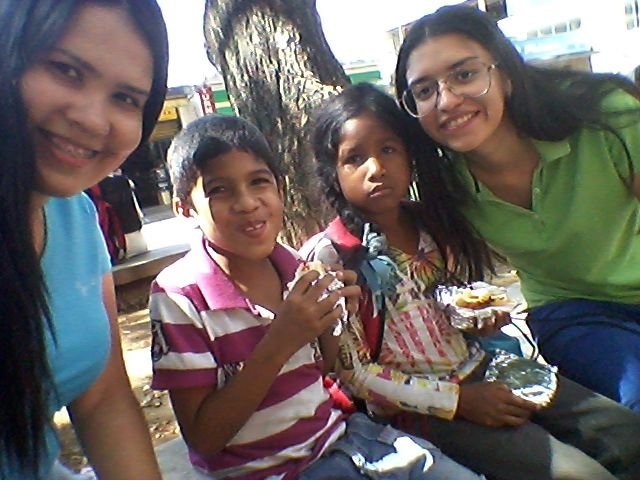what to do when social service knocks on your door - Psychological Suggestions Part II

In principle I would like to tell you that this post aims to provide tools to both parents and caregivers, replacement mothers or individuals who wish to help when we know that a child has graduated from social service shelters, in principle I would like to note that in many opportunities We do not treat it as such, in other words we who are here know that when we spend a lot of time in a place without our family, with depression, anxiety, omitting meals when they are necessary, we have many psychological repercussions.
We could even say that we suffered a trauma when leaving the shelter and returning home if, a trauma but, in principle, it is a trauma, it is simply an emotional experience that we experience and we do not have the internal resources to face it. another way, when we were away from our parents we knew what to do? No, we were just children, and when our parents were fighting for our custody in court, we knew what to do and wait? neither, when finally (it does not happen in all the cases, to me if I happen), we have the happiness to return with our family, we can sleep, eat and play as we used to do? Not many times, so this experience can be considered a trauma.
In psychology, as I commented in my previous post there is a resource called psychological first aid and I really hope that all people who wish to help are attentive to my periodicals since it is not necessary to be a psychologist to use this tool, it is enough to train and acquire accurate information to be able to do it properly and above all, know the necessary of this application.
There are two major stress disorders, among them, this stress acute, which has symptoms respond with fear, intense horror or despair, in this case to the separation of their families, or on the contrary forget the event, absence of answers emotional, irritability, difficulty falling asleep, difficulty concentrating, inability to remember something specific very traumatic of the experience, and feeling of a bleak future, these are some of the characteristics that we experience from our own experience.
On the other hand, posttraumatic stress may cause feelings of worry, sadness or guilt, explosions of anger, difficulty sleeping or nightmares in doing so, feelings that the event is happening again. As you can see, both disorders have many similarities with the stories that we tell here, children who, when they return to their homes, show shocks by social service snowmobiles, need to stay close to their parents and not separate, or adolescents who have bursts of anger. and usually they go to the streets to carry out illicit conducts.
In my previous post I commented that when the social service entered our home, we had to tell our children that it had even happened to have a family meeting to channel their doubts, not to hide or normalize it, because when the dreaded separation was carried out the children did not They will know why it happened and in many cases, when they are very young they will believe that their parents abandoned him. In this post I will explain a bit how to deal with the trauma of separation.
First aid psychological for infants
In principle it is important to take into account that each child is different, but in general they do not understand what happens, but if we know what their reactions are, we can reassure them. They usually have a normal behavior, are agitated or do not speak at all because they have difficulty communicating what they are feeling. On many occasions the youngest infants express their feelings of worry, pain or anxiety by playing, or by doing specific activities such as fear of sleeping alone, going to the bathroom to a specific animal, as well as fear of losing a person he specifies what translates into difficulty to take him to school, he can even go back to urinating in bed, losing autonomy and desiring attention of his significant figures in a demanding manner.
First step
Contain: Our goal is to ensure rest in the first place, their physiological needs such as sleep and food intake, clearly accompanied by displays of affection.
Second step
Calm down: In principle we must place ourselves at his height, that is to bend down so that he has the opportunity to see us close to him, we will talk to him in a reassuring way, this can be accompanied by a massage or a bath, in the same way of reading his favorite story or your favorite song
Third step
Inform: It is necessary that we inform you what will happen from that monemto and what we are going to do, as I said in the previous post to our children we should give them the information of the reality, clearly not in their totality because they do not have the possibility cognitive to digest it, but we omit to hide reality.
Fourth Step
Normalize: We must be patient with their behavioral manifestations, even know and make them understand that their reactions are consequences of what they have experienced, but that we will be there with him to help him.
Fifth step:
Consolar: It is our duty to encourage the child to do what an infant of his age performs, play, draw, and something very important, we will try to follow the daily routines before separation, if he was allowed to participate in simple household chores. that encourage him to do it again.
Remember that the responses of children to the separation of their families are expected, but if we consider these suggestions with the passage of time will gradually decrease to extinguish, remember that there are not only economic but also psychological repercussions that leaves in its wake the CPS
These suggestions are for infants from 3 to 6 years old, in my next post I will talk about what to do when it comes to adolescents. I hope you take advantage of the information and multiply it, since it is necessary.

This post has received a 3.73 % upvote from @boomerang.